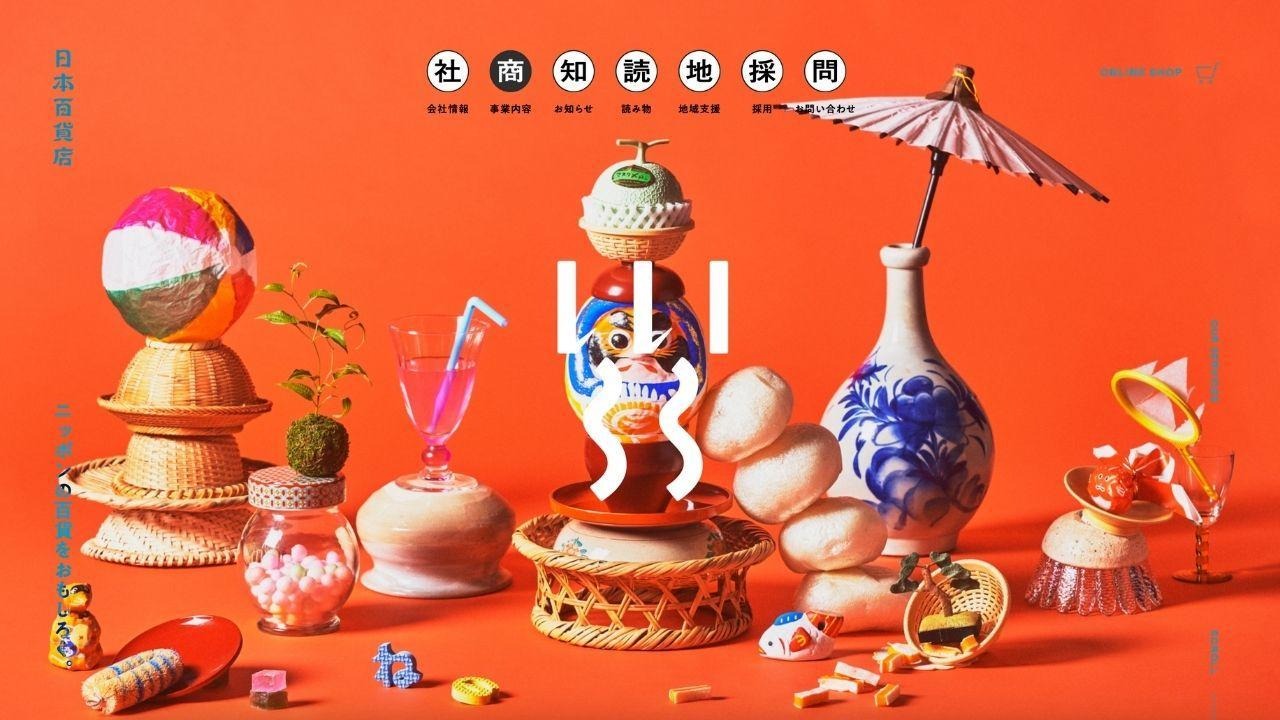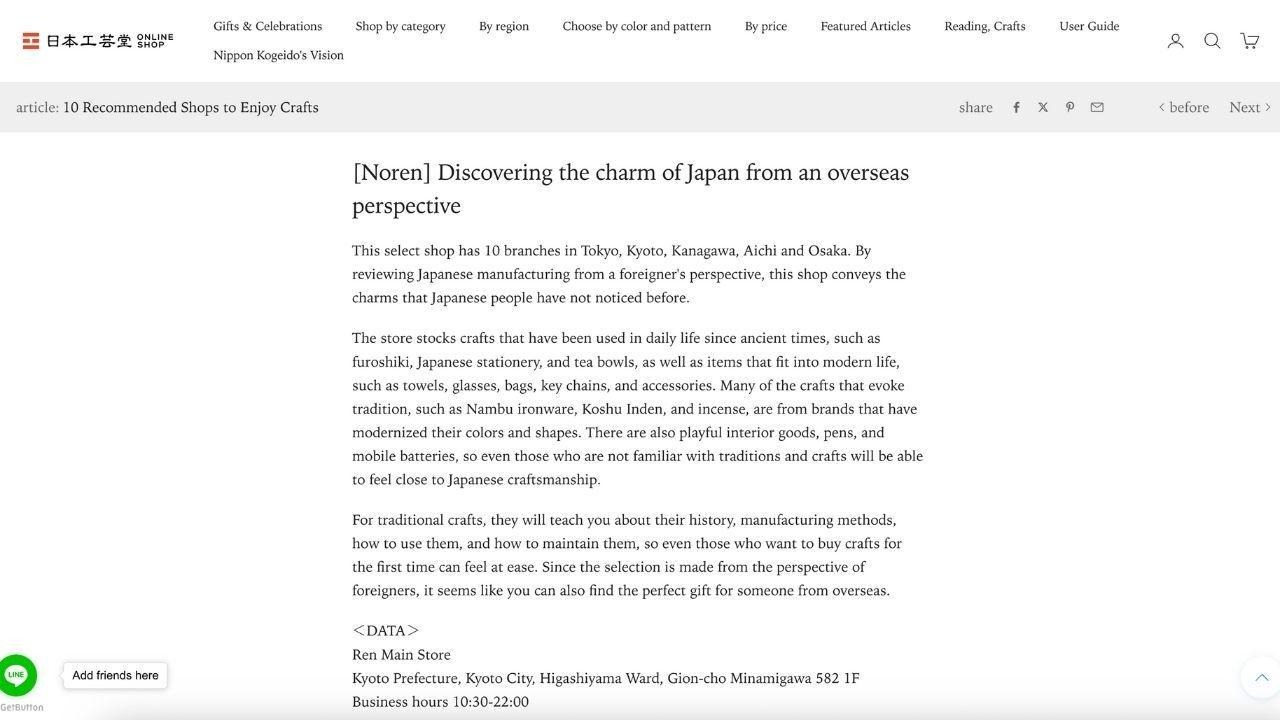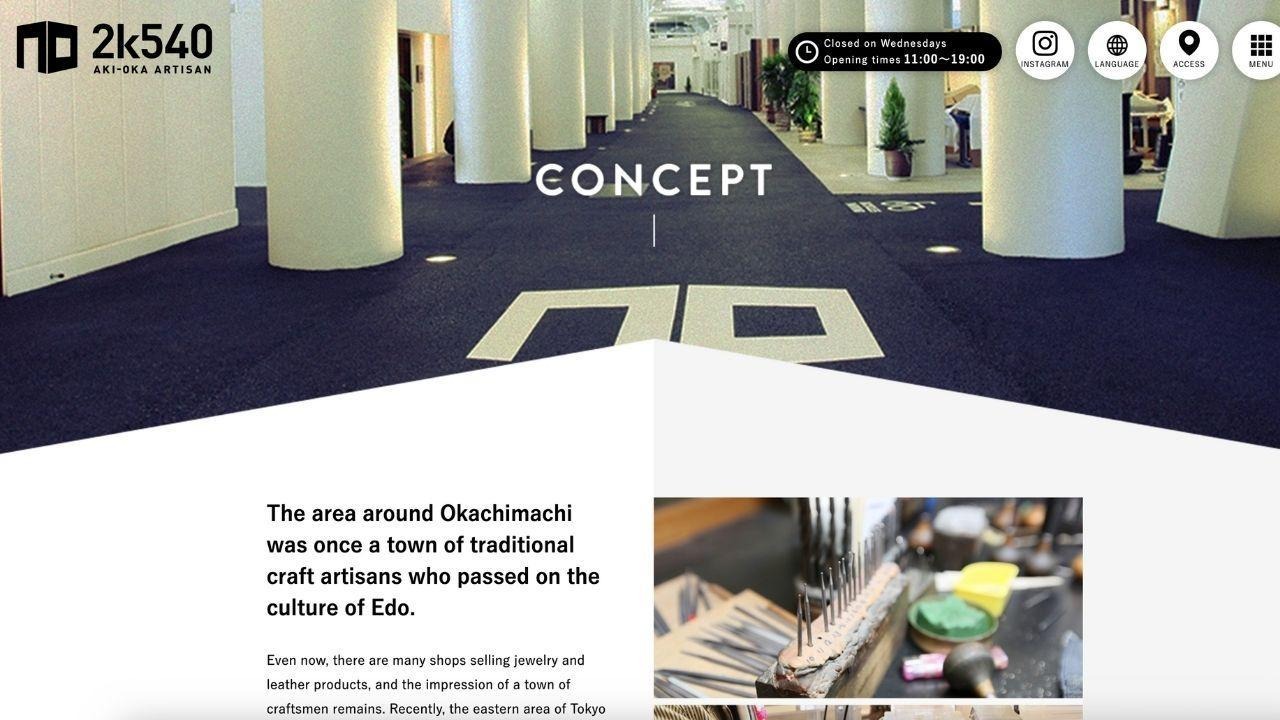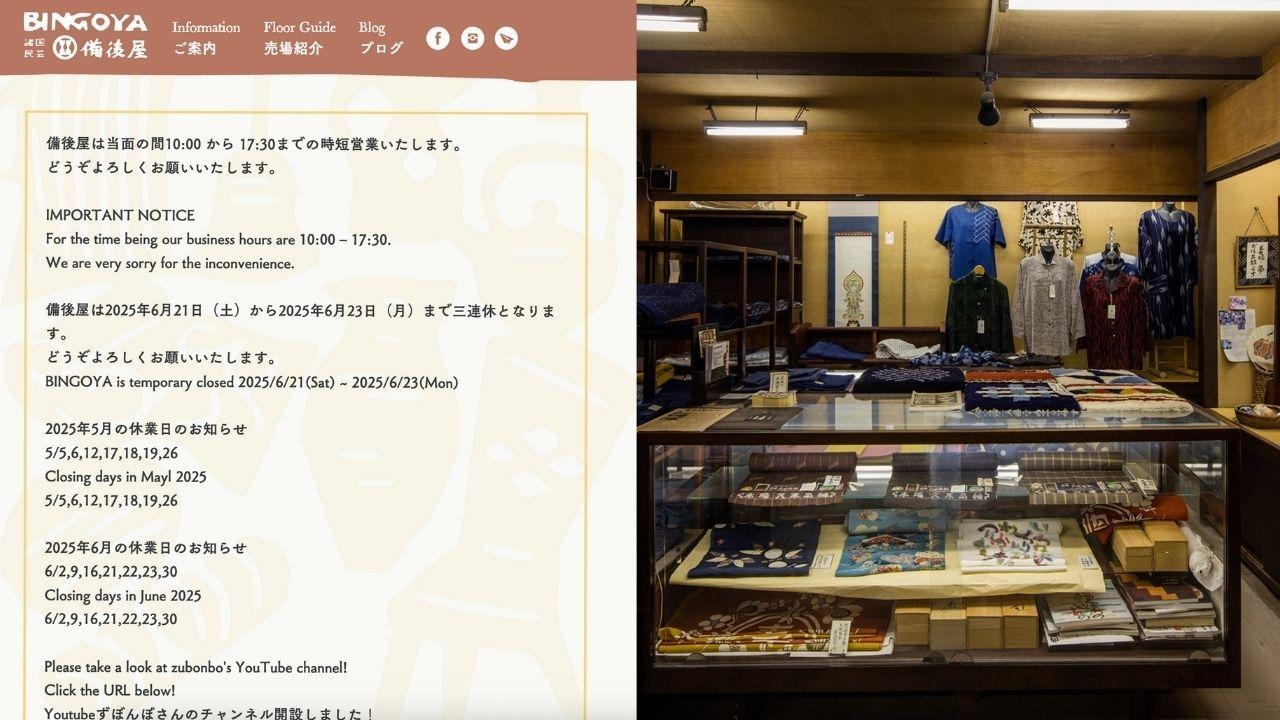Top 5 Places to Buy Traditional Japanese Arts and Crafts

In recent years, traditional Japanese crafts and artwork have been gaining attention not only within Japan but also around the world. These handcrafted items, created using techniques passed down over centuries, can be enjoyed as decorative pieces or incorporated into everyday life.
Each region offers unique, locally rooted creations that are much more than just souvenirs. They are a special way to experience the culture and history of Japan. Still, many people may find it hard to know where to shop for authentic traditional crafts. In this article, we will introduce the best places to buy Japanese traditional crafts and artwork, presented in a ranked format to help guide your choices.
Whether you are looking for a memorable souvenir, a thoughtful gift, or something to enrich your own home, we hope this list serves as a helpful starting point. We highly recommend stopping by if you’re planning a trip to Japan.
Recommended Shops
(*Based on the website of Nihon Kogei-do)
- Nippon Department Store
- Noren
- 2k540 AKI-OKA ARTISAN
- Chidori
- Bingoya
1. Nippon Department Store

Source: Nippon Department Store (JP) Homepage
According to the official website, the concept is to make traditional Japanese goods more exciting and approachable by sourcing exceptional items through visits to production sites across Japan, carefully selecting standout products through expert selection, and presenting them freshly and engagingly.
The store offers a wide variety of products:
- Clothing, food, beverages, home goods, and lifestyle items
- Works with over 1,000 makers
- Stocks around 10,000 products across all locations
Nippon Department Store also operates eight distinct locations, each with its own character. These include shops that offer a mix of everyday goods and food items and specialty stores dedicated entirely to food. These spaces regularly feature live demonstrations and hands-on workshops, creating meaningful connections between artisans, customers, and retailers while supporting a win-win relationship for everyone involved.
According to the Nihon Kogei-do website, the store offers a wide variety of traditional Japanese items, including washi paper, fabric goods, tenugui towels, tin sake sets, ceramic cups, and chopsticks.
There is also a selection of handmade foods such as konpeito sugar candy, miso, and soy sauce. For those interested in discovering the charm of Japanese culture or finding a meaningful gift that reflects the skills of Japanese artisans, this shop provides a well-rounded selection suited to many needs.
Certain handcrafted items are offered only for a limited time, and during these special periods, it’s sometimes possible to talk directly with the artisans behind the work. Nihon Kogei-do also frequently joins pop-up events at department stores across Japan, making it a great chance to visit if one happens to be held nearby.
2. Noren

Source: Noren Homepage
According to the Nihon Kogei-do website, Noren is a select shop with ten locations mainly in Tokyo and Kyoto, as well as in Kanagawa, Aichi, and Osaka.
By viewing Japanese craftsmanship through the eyes of international visitors, the shop helps uncover and share unique charms that even locals may have overlooked.
Noren offers a curated mix of traditional and modern Japanese items, including:
- Furoshiki cloths
- Japanese stationery
- Tea bowls
- Towels
- Glassware
- Bags
- Keychains
- Accessories
Many traditional crafts, including Nambu ironware, Koshu Inden leather, and incense, are offered by brands that have updated the colors and designs to suit a more modern appeal. The selection also features playful interior goods, pens, and portable chargers, making it easy for people unfamiliar with traditional crafts to experience and appreciate the skill of Japanese artisans.
3. 2k540 AKI-OKA ARTISAN

Source: 2k540 AKI-OKA ARTISAN Homepage
According to the website of 2k540 AKI-OKA ARTISAN, the space is designed to connect people, whether creators with each other, creators with companies, or creators with visitors, by reimagining the area beneath the train tracks as a place for collaboration and creativity.
The facility aims to become a new hub for craftsmanship, featuring a unique setup where workshops and shops are integrated into one space. Visitors can speak directly with the artisans, order personalized items, and experience the creative process up close. This direct interaction not only boosts the creators' motivation but also helps them stay connected to customer needs and current trends.
The facility also plays a role in discovering and promoting the next generation of talented creators, providing support to help them grow and succeed on a global stage. According to the website of Nihon Kogei-do, Okachimachi has a long history as a space for artisans, and the tradition continues today with many craftspeople still active in the area.
A prime example of this ongoing legacy is 2k540, a creative space located under the train tracks between JR Okachimachi and Akihabara Stations. This unique venue houses approximately 50 shops, which combine studios and retail spaces.
Offers a diverse selection of handmade goods, including:
- Leatherwork
- Ceramics
- Glass
- Woodworking
- Naturally dyed textiles
- Jewelry
- Resin art
- Furniture
- Footwear
What makes 2k540 especially memorable is the opportunity to speak directly with the makers, gaining insight into their techniques, inspirations, and passion. For anyone who appreciates handmade artistry, it offers a rewarding and personal experience.
4. Chidori

Source: Chidori Homepage
According to Nihon Kogei-do's website, Chidori is a shop founded by a former cooking instructor who was inspired to open a tableware store after discovering a deep appreciation for handcrafted ceramics.
The shop offers sturdy, practical pieces designed for everyday use. Chidori offers a wide range of materials as a specialty shop for tableware. Visitors may be amazed to find that tableware includes not only ceramics and porcelain but also glass, tin, and wood. The owner personally visits each artisan and selects only pieces that meet high standards. Each item reflects the unique style of its maker, and at the same time, they are all practical and comfortable to use in daily life.
The store also holds regular exhibitions that feature the work of various artisans. Some are familiar artists whose pieces are usually available in the shop, while others are new creators the owner has recently discovered. It's fun to compare different styles, but spending time with the work of just one artist can help you better appreciate their unique approach.
5. Bingoya

Source: Bingoya Homepage
According to the Bingoya website, the store focuses on mingei, which refers to traditional Japanese folk crafts. According to Nihon Kogei-do, some people say that crafts are made by skilled artisans using advanced techniques, while folk crafts are handmade items created for everyday use in daily life.
Folk crafts have been designed with care so they are easy to use at home, whether for children or for the whole family. That is why these items are so appealing and make people want to use them every day.
Bingoya is considered a department store of folk crafts, offering a deep sense of traditional Japanese living. Spread across the basement to the fourth floor, the store is filled with folk crafts from across Japan, including washi paper, textiles, bamboo work, ceramics, accessories, and traditional toys. Each item is carefully handmade, carrying the warmth and character unique to handcrafted pieces.
Conclusion
In this article, we introduced some of the best places to find traditional Japanese crafts and artwork. These items make perfect gifts for loved ones or memorable souvenirs from your trip.
In addition to the shops featured here, you can also explore traditional crafts through flea market apps and other online platforms. If you're traveling to Japan, we recommend not only visiting popular tourist spots but also stopping by some of these craft shops to experience the charm of Japanese craftsmanship firsthand.















